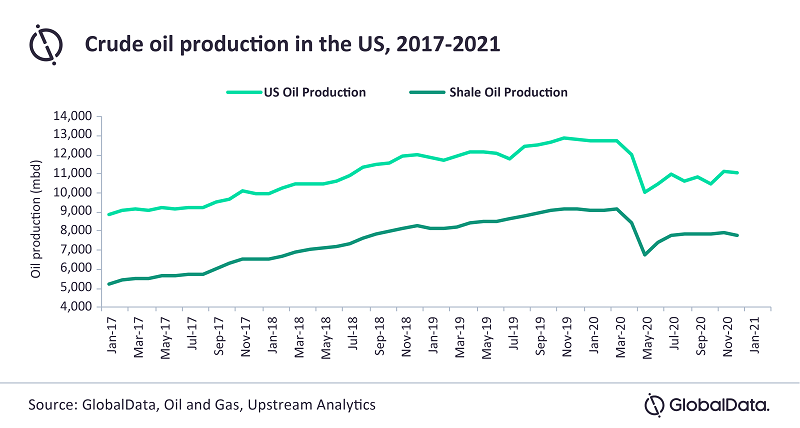Lagos — Over the past ten years, oil and gas operators have been focusing on production growth at all costs, but in 2020 they switched their initiative to returning value to investors. The majority of operators have stated that they are planning to operate within free cash flow to fund their future capital expenditures, which means that the next few years of oil and gas production growth in the US will hinge on the discipline of operators with their capital budgets, says GlobalData, a leading data and analytics company.

GlobalData’s latest report, ‘Unconventional Production in the US Lower 48, H2 2020’, states that the COVID-19 pandemic led to dampened commodity prices and the price war between Saudi Arabia and Russia compelled operators to reduce their capital expenditure and rig count during the first half of 2020. However, commodity prices rebounded over the second half of 2020, and, since September, operators have started to slowly increase their rig count, which has now almost doubled from the third quarter numbers. West Texas Intermediate (WTI) futures are currently averaging US$60.51 for the rest of 2021 and US$56.36 for 2022.
Andrew Folse, Oil & Gas Analyst at GlobalData, comments: “If prices remain flat, at around US$60/bbl for the remainder of 2021, operators will have a chance to generate free cash flow and prove to investors that that they are able to return money to shareholders after poor results in 2020. However, since prices have risen, the rig count in the US Lower 48 has also increased significantly, along with the US production levels. If production levels continue to increase, the OPEC+ group could increase their production in a short period of time, which would directly affect commodity prices and profitability of the US operators.
“US President Joe Biden has added a degree of uncertainty for oil and gas operators with acreages located on federal lands. He ordered a 60-day pause on issuing new drilling permits and leasing on federal lands. However, a hiatus on drilling permit on federal lands would not have an immediate effect on overall production level, with operators shifting their capital to acreage on public lands.
“As the 60-day ban on federal land leasing came to an end on March 21, the US Bureau of Land Management (BLM) stated that it would resume processing oil and gas drilling permits on federal lands. If a long-term ban on federal drilling permits was to be a permanent policy, it could have an overall effect on oil and gas production levels in the upcoming years.”



